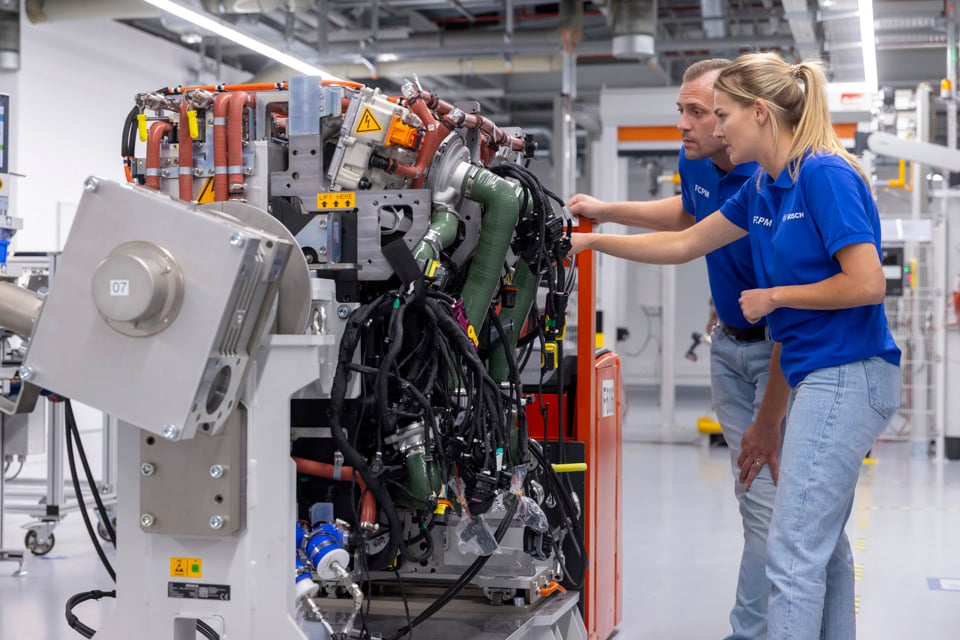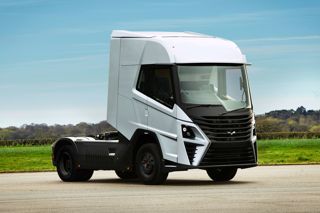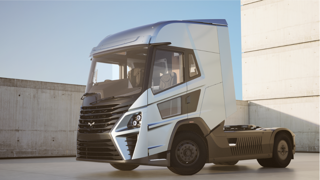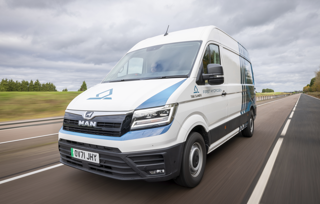Bosch has begun volume production of its fuel-cell power module, with Nikola Corporation, based in the United States, serving as the pilot customer.
The powertrain will be used in its Class 8 hydrogen fuel cell electric truck, which is scheduled to enter the North American market in the third quarter of 2023.
“Here in Stuttgart-Feuerbach, in the plant whose history goes back further than any other Bosch plant, the hydrogen future is about to happen,” said Dr Stefan Hartung, the chairman of the board of management at the Bosch Tech Day 2023. “Bosch knows its way around hydrogen, and Bosch is growing with hydrogen.”
The company operates along the entire hydrogen value chain, developing technology for its production and application.
By 2030, Bosch plans to generate sales of roughly 5 billion euros with hydrogen technology.
“Bosch is one of the very few companies that are capable of mass-producing technology as complex as fuel-cell stacks,” said Markus Heyn, member of the Bosch board of management and chairman of Bosch Mobility.
“We don’t just have the required systems expertise, but also the capability of quickly scaling up new developments to mass production.”
The company expects that, by 2030, one in five new trucks weighing six tons or more will feature a fuel-cell powertrain.
Between 2021 and 2026, Bosch will have invested a total of nearly 2.5 billion euros in the development and manufacturing of its hydrogen technologies.
However, Hartung believes that Europe must do much more to create a counterweight to the rapid pace of developments in other regions of the world, such as the United States.
More specifically, the Bosch chairman has four demands of German and European policymakers. “First, we have to step up the pace of hydrogen production in the EU. Second, global supply chains have to be set up, and third, hydrogen has to be used in all sectors of the economy,” he said.
As a fourth point, he stressed the importance of quickly setting up infrastructure for distributing hydrogen in Europe.
“A hydrogen engine can do everything a diesel engine does, but on top of that, it is carbon neutral,” said Heyn. “It also allows a fast and cost-effective entry into hydrogen-based mobility.”
One major advantage is that more than 90% of the development and manufacturing technologies needed for it already exist.
The hydrogen engine is expected to be launched starting in 2024.
























Login to comment
Comments
No comments have been made yet.